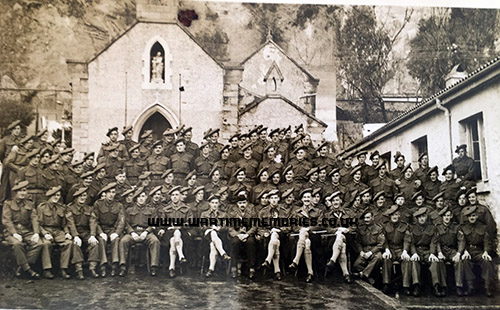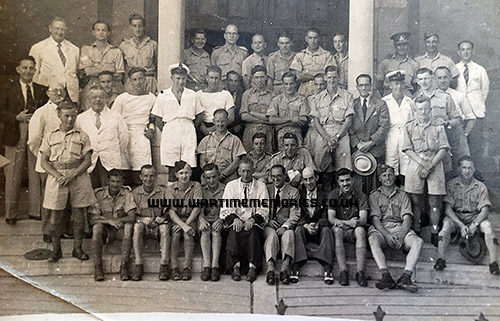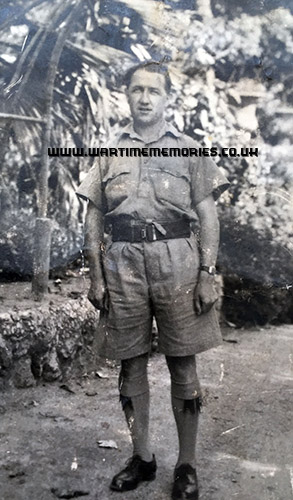Thomas McGowan was born on 25 August 1908 in Shotts, Lanarkshire, Scotland and died on 17 December 1981 in Dover, Kent, England.
At the age of 21, on 3 February 1930, Tom joined the Highland Light Infantry. His first choice had been the Black Watch, but they did not accept him because he was too short at 5ft 2½"! Evidently the same rules did not apply throughout the military system of the day.
After basic training at Maryhill Barracks, Glasgow, he was posted to Malta. He remained there until Christmas 1931 when the Battalion left Malta for a posting in Dover, Kent. Among the officers serving in the HLI with Tom in Malta and Dover, was 2nd Lieutenant David Niven, later to find fame in Hollywood!
It was in Dover that Tom met his future wife, Gladys. They married in 1934 and their first child was born in 1936. Tom decided to try his luck in Civvy Street and left the army. He got a job as a steward on the cross-channel ferries, sailing out of Dover. Of course, this all changed on 3rd of September 1939. Tom knew he would be among the first to be called up for active service, and this proved to be the case, in fact just two days later, on September 5th.
Tom, naturally, expected to return to the HLI and his expectation proved to be correct, but owing to a reduction in personnel of The Black Watch, it was to them he was seconded. Coincidentally, the 1st Battalion of The Black Watch was stationed at the time in Dover, so it was here that Tom enlisted. From Dover he was sent to Aldershot to receive basic training with the 4th Battalion, with whom he would be permanently attached.
In January 1940, the 4th Battalion of The Black Watch, as part of the 51st Highland Division, was sent to France to assist the British Expeditionary Force. Tom was luck, because the 4th Battalion, at the time of Dunkirk, was sent ahead to hold Le Havre as a point of embarkation, so escaping much of the confrontation, and were themselves safely evacuated from Cherbourg on the 12th of June. On 20 March, Gladys had given birth to their second child, a girl. Tom, who had been notified by telegram, he didn’t see his daughter until his return from France six weeks later. However, it was a brief reunion. For Tom, along with the 4th Battalion, was sent to strengthen the Garrison at Gibraltar where they remained until 1943.
In the summer of 1943 Tom was posted to Wick, Caithness, in the remote northeast of Scotland. Here Tom rented a house for Gladys and the children so they could get away from front-line Dover, and he was able to get home every night. This domestic arrangement did not last long, as Tom was then posted to India just after Christmas 1943.
Arriving in the first week of January 1944, he was first stationed at The Black Watch, India Command, Deolali, some 170 miles northeast of Bombay. For some time, Tom had been bothered by the partial loss of sight in one eye. Forced to see a specialist during his first weeks in India, it was confirmed that a nerve in the eye was dead and that there was no chance of recovery. This did mean, however, that he would not be able to shoot a rifle, resulting in him being downgraded to a non-combatant category.
The offshoot of this decision was that in April he was posted to Itarsi, in the state of Madhya Pradesh, where he became part of the team involved in troop and supply logistics. For this purpose, the Army had control of the railway, and Tom (promoted to Sergeant in June) was appointed assistant station-master at the Itarsi station.
Tom was to remain in India for the duration of the war, not returning home until early in 1946 and being amongst the last to be demobbed.
The above was told by Tom to his son, John, in his later years.







